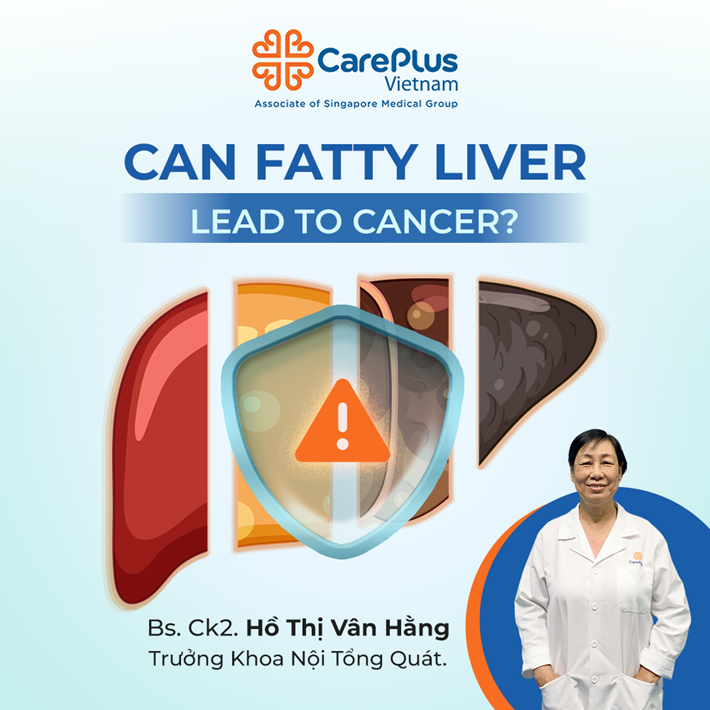Can fatty liver lead to cancer?
Fatty liver usually has no symptoms. But if too much fat builds up long term in the liver, it can lead to liver damage.

12/6/2022 10:52:34 AM
Too much fat accumulates in the liver causing health problems, which can lead to hepatitis, cirrhosis, liver cancer... due to fatty liver.
The liver of an adult is about 2-4% fat. When this component accounts for more than 5% of the liver weight, it is considered fatty. Fatty liver grade mild 5-10%, moderate: 10-25%, severe >25%. The disease tends to increase as the population's frequency of alcohol abuse, obesity and metabolic diseases such as diabetes and dyslipidemia increases.
Some causes of fatty liver:
People with obesity, diabetes, dyslipidemia, and large waist circumference are risk factors for fatty liver even if they do not use alcohol.
Some common symptoms:
Fatty liver usually has no symptoms. But if too much fat builds up long term in the liver, it can lead to liver damage.
This process progresses through stages from simple asymptomatic fatty liver to fatty liver disease with elevated liver enzymes, gradually progressing to steatohepatitis & liver fibrosis and finally to a more severe degree with severe liver failure. can lead to fatty liver cirrhosis and liver cancer due to fatty liver.
People with fatty liver who have hepatitis or cirrhosis may have symptoms such as: right upper quadrant pain, loss of appetite, weight loss, fatigue, rash, easy bruising or bleeding, leg swelling, dark urine color…
“The liver is the second largest internal organ and plays a very important role in the body. If severe fatty liver leads to permanent, irreversible liver damage, it will seriously affect the patient's health. Treatment only improves symptoms, prolongs life, does not cure completely, so preventing fatty liver is very important.
Prevent fatty liver
Alcohol disrupts metabolism in the liver. These metabolic products bind to fatty acids, preventing the liver from getting rid of fat and storing it. For people who do not consume too much alcohol, fatty liver is associated with risk factors such as obesity, diabetes, people with metabolic syndrome ...
About 15-30% of people who drink a lot of alcohol for a long time have cirrhosis of the liver. Patients with early-stage alcoholic cirrhosis have about 90% of cases of survival more than 5 years if alcohol is stopped and less than 70% if they continue to drink. The 5-year survival rate if alcohol is stopped or continued in patients with advanced cirrhosis is 60% and less than 30%, respectively. Therefore, alcohol cessation in people with alcoholic cirrhosis is of great importance in the long-term prognosis.
To prevent the risk of fatty liver, it is recommended that people:
- Should limit or completely abstain from alcohol; weight control.
- Build a diet low in saturated fat, animal fat, fried foods, and refined carbohydrates.
- Manage blood sugar and cholesterol.
- Exercise at least 30 minutes a day and at least 5 days a week.
- If there are diseases related to metabolic disorders such as diabetes, dyslipidemia, the patient should follow the treatment regimen of the doctor.
- Viral hepatitis easily damages the liver.
- Vaccination against hepatitis A and hepatitis B, regular screening for hepatitis C is a way to protect the liver.
Fatty liver is usually not an acute disease, not a direct threat to the patient's life. But patients need to detect and adjust timely, the right regimen to avoid complications later. Patients with fatty liver with underlying disease should be treated in combination to avoid rapid disease progression.